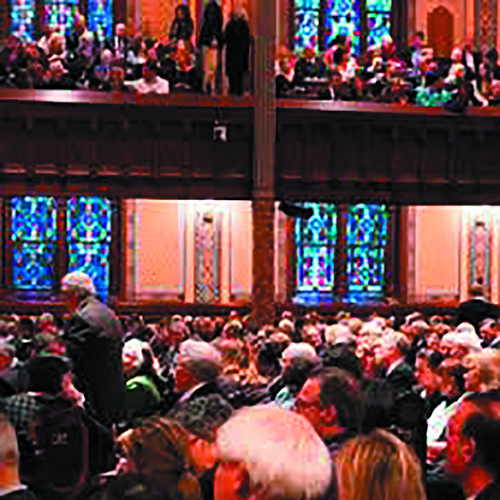
One of the advantages of the clocks being moved ahead one hour in the Spring (did I say it’s Spring? Hah!) is the extra hour we have to prepare for Shabbat. When my father passed away in 1993, Rabbi Jay Marcus, then of the Young Israel of Staten Island, lovingly referred to my father in Rav Soloveitchik’s parlance as an “Erev Shabbos Jew”—meaning, my father was ready for Shabbat hours before it arrived; showered, dressed, with the weekly Torah portion in his hand, sitting in his favorite chair literally waiting for the Shabbat bride to arrive. He never, ever rushed down to the last minute like many of us do.
And so on the first “late Shabbat” of the year I was determined to make it to shul on Friday night—something I didn’t always get to do in the winter’s shorter hours. Of course the preparations and time flew by, and I found myself on the treadmill 45 minutes before Shabbat, still needing to shower and shave.
I’m a baseball junkie, and so for lack of anything better to watch while running in place, I was tuned to the MLB network—Channel 149 in your scorecards—watching a spring training game. “This is one heck of a way to get ready for Shabbat,” I thought to myself. Daydreaming of sitting in the stands in Arizona watching this game in person, I decided to absentmindedly flip through the channels when I landed down at channel 138—which happens to be Shalom TV.
If it’s possible to freeze in place while running on a treadmill, I did. Live, from New York City’s Central Synagogue on East 55th Street and Lexington Avenue was a Reform Kabbalat Shabbat Service intended for those who are homebound and want a participatory Shabbat experience.
I often find it difficult judge the observance, or lack of observance, of others. I care about my two biological sisters very much, and love them dearly, but I would never tell them how I believe they could put their spiritual house in order.
All the more so, I find it difficult to simply dismiss a collective group of my fellow Jewish brothers and sisters who genuinely seem to embrace prayer and a connection to God to which I myself may not subscribe. But allow me to say this. It wasn’t yet Shabbat, so watching the festivities was no issue. And festivities they were. Three women—one of whom I could swear was Neshama Carlebach, sang “Lecha Dodi” to the famous niggun of Reb Shlomo Carlebach’s “V’yeesayun” —which we also all know as “L’shana Haba Biyerushalayim.” One singer had a guitar, and the joy was real. Several hundred in the crowd clapped along. At “Boee Vshalom,” they all turned toward the doors and then back towards the Ark. Some more singing, Carlebach-style, was followed by a pitch-perfect rendition by the rabbi of parts of the Friday night Maariv service. Did it seem awkward and make me feel very uneasy? Yes. But at the same time, did I find it somewhat refreshing? Yes, these fellow Jews were clearly enjoying themselves in moments of prayer.
But I was not the story here. If these congregants were happy and enjoying and participating in their Kabbalat Shabbat service, then I was happy for them. Would I prefer they kept halacha? Of course. Was it a potentially interesting “kiruv-outreach” moment? Sure was.
I once heard a fascinating insight about the Pesach Seder and the Hagaddah, many years ago. The Hagaddah introduces us to the Four Sons, one of whom is deemed to be wicked. In today’s day and age, though, how can he possibly be considered wicked if he is at the table? He actually came to the seder table and participated, when so many other Jewish sons and daughters are so disenchanted from their Judaism and their parents’ traditions that they don’t bother showing up to the table at all. Maybe they are not wicked either, but anyone who shows up at the table can’t be THAT bad.
Several hundred fellow Jews showing up for Friday night services on the Upper East Side can’t be that bad. My lesson learned? We need to bring some of that passion and excitement back into our shuls, and we need to share dedication to halacha back into other places of worship.
And like my father, they were there early; they showed up, waiting for the Shabbat bride to arrive.
By Robert Katz










